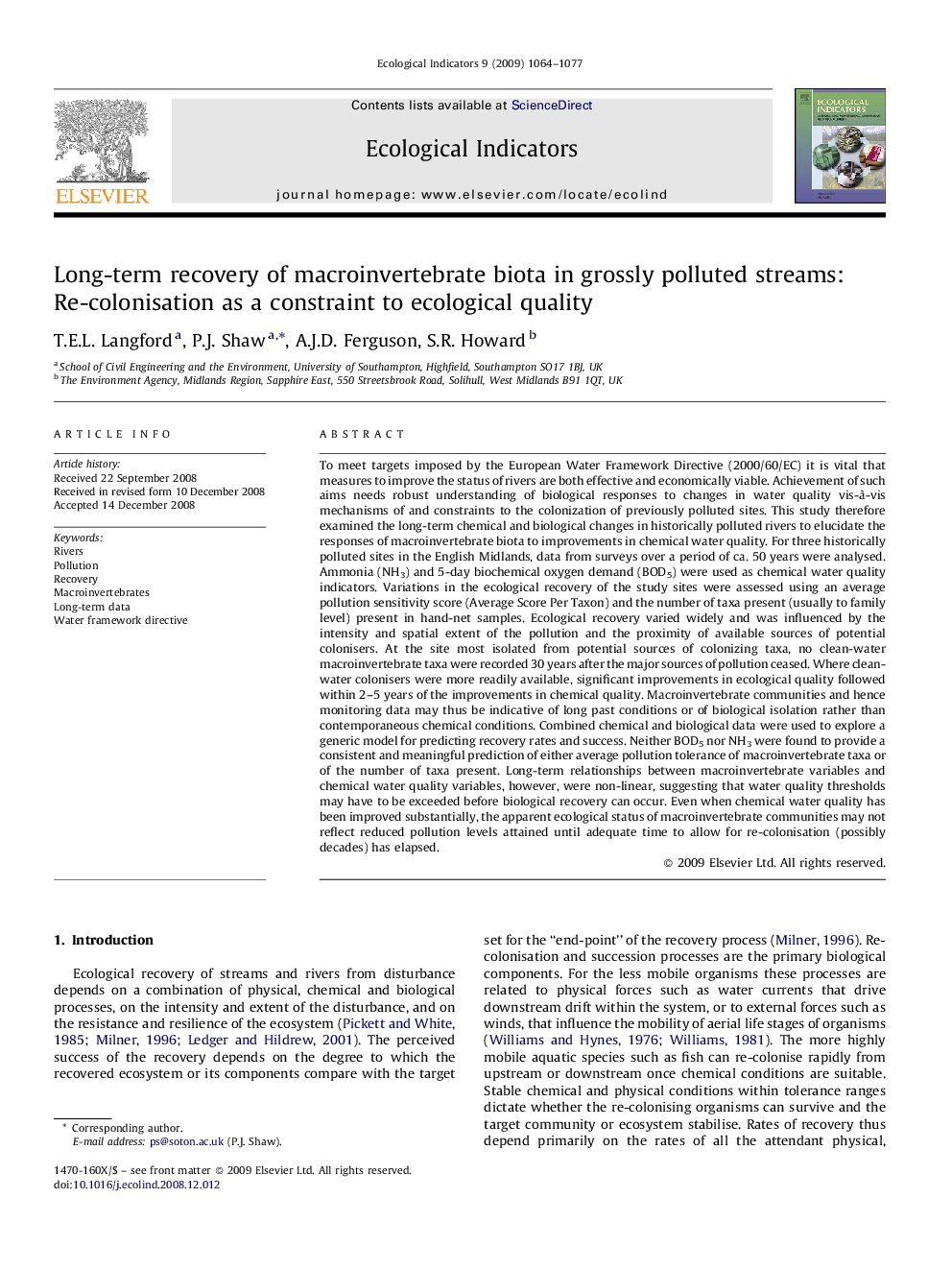| کد مقاله | کد نشریه | سال انتشار | مقاله انگلیسی | نسخه تمام متن |
|---|---|---|---|---|
| 4374335 | 1303170 | 2009 | 14 صفحه PDF | دانلود رایگان |

To meet targets imposed by the European Water Framework Directive (2000/60/EC) it is vital that measures to improve the status of rivers are both effective and economically viable. Achievement of such aims needs robust understanding of biological responses to changes in water quality vis-à-vis mechanisms of and constraints to the colonization of previously polluted sites. This study therefore examined the long-term chemical and biological changes in historically polluted rivers to elucidate the responses of macroinvertebrate biota to improvements in chemical water quality. For three historically polluted sites in the English Midlands, data from surveys over a period of ca. 50 years were analysed. Ammonia (NH3) and 5-day biochemical oxygen demand (BOD5) were used as chemical water quality indicators. Variations in the ecological recovery of the study sites were assessed using an average pollution sensitivity score (Average Score Per Taxon) and the number of taxa present (usually to family level) present in hand-net samples. Ecological recovery varied widely and was influenced by the intensity and spatial extent of the pollution and the proximity of available sources of potential colonisers. At the site most isolated from potential sources of colonizing taxa, no clean-water macroinvertebrate taxa were recorded 30 years after the major sources of pollution ceased. Where clean-water colonisers were more readily available, significant improvements in ecological quality followed within 2–5 years of the improvements in chemical quality. Macroinvertebrate communities and hence monitoring data may thus be indicative of long past conditions or of biological isolation rather than contemporaneous chemical conditions. Combined chemical and biological data were used to explore a generic model for predicting recovery rates and success. Neither BOD5 nor NH3 were found to provide a consistent and meaningful prediction of either average pollution tolerance of macroinvertebrate taxa or of the number of taxa present. Long-term relationships between macroinvertebrate variables and chemical water quality variables, however, were non-linear, suggesting that water quality thresholds may have to be exceeded before biological recovery can occur. Even when chemical water quality has been improved substantially, the apparent ecological status of macroinvertebrate communities may not reflect reduced pollution levels attained until adequate time to allow for re-colonisation (possibly decades) has elapsed.
Journal: Ecological Indicators - Volume 9, Issue 6, November 2009, Pages 1064–1077